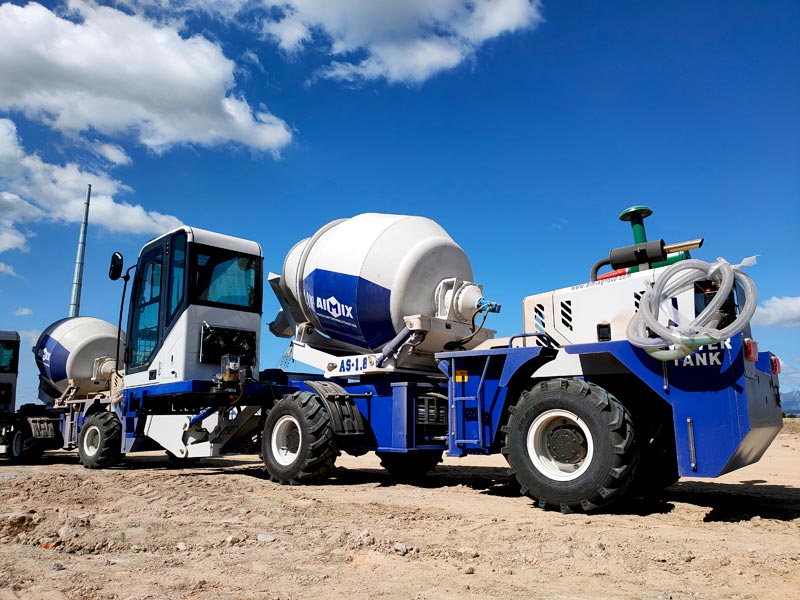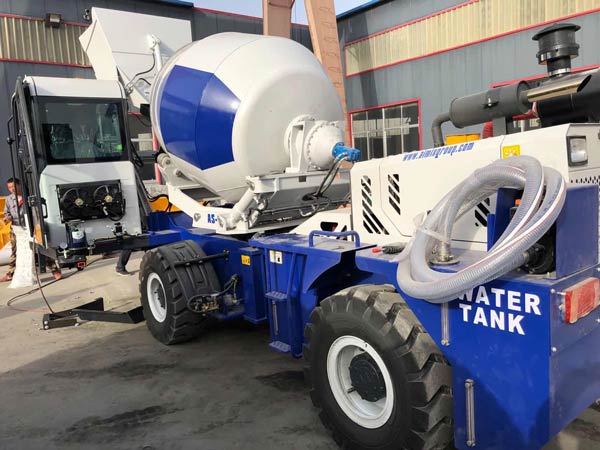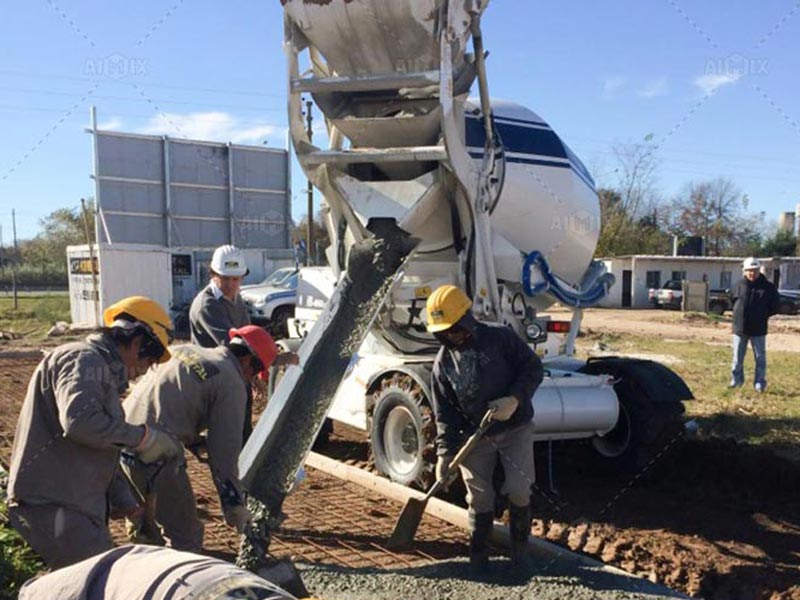Managing concrete mixer downtime and maintenance is crucial for the efficiency of your construction projects. Proper management ensures that your mixers remain in optimal working condition. This article covers essential strategies for mobile, hydraulic, portable, and self-loading concrete mixers. Understanding these strategies will help you minimize downtime and maximize productivity.

Importance of Regular Maintenance
Regular maintenance is essential for keeping your concrete mixers in top condition. It prevents unexpected breakdowns and extends the life of your equipment. By conducting routine checks, you can identify and address issues before they escalate.
Regular maintenance also ensures consistent performance and quality. Well-maintained mixers produce high-quality concrete, which is essential for the success of any construction project. Let’s explore specific maintenance tips for different types of concrete mixers.
Mobile Concrete Mixers
Mobile concrete mixers offer flexibility and onsite concrete mixing capabilities. To keep them running efficiently, conduct regular inspections and maintenance. Check the engine, transmission, and hydraulic systems for any signs of wear or damage.
Clean the mixer drum after each use to prevent concrete buildup. Lubricate moving parts to reduce friction and wear. Regularly check and replace filters, belts, and hoses as needed. These steps will keep your mobile mixer in optimal condition and minimize downtime.

Self-Loading Concrete Mixers
Self-loading concrete mixers combine loading, mixing, and transportation in one machine. Regular maintenance is essential to ensure their efficiency and reliability. Inspect the engine, transmission, and hydraulic systems for any signs of wear or damage.
Clean the mixer drum and lubricate moving parts to ensure smooth operation. Check and replace filters, belts, and hoses as needed. Regularly inspect the self-loading mechanism for any issues. Proper maintenance will keep your self-loading mixer running efficiently and reduce the risk of downtime.
Hydraulic Concrete Mixers
Hydraulic concrete mixers are known for their power and high output. Regular maintenance is crucial to ensure consistent performance. Inspect the hydraulic system for leaks and check fluid levels regularly.
Replace hydraulic fluid and filters according to the manufacturer’s recommendations. Inspect the hydraulic concrete mixer components for signs of wear or damage. Clean the mixer drum and lubricate moving parts to ensure smooth operation. Proper maintenance will keep your hydraulic mixer running efficiently and reduce the risk of downtime.
Portable Concrete Mixers
Portable concrete mixers are designed for ease of use and mobility. Regular maintenance ensures they remain reliable and efficient. Inspect the engine, transmission, and electrical systems for any issues.

Clean the mixer drum after each use to prevent concrete buildup. Lubricate moving parts to reduce friction and wear. Regularly check and replace filters, belts, and hoses as needed. These steps will keep your portable mixer concrete in top condition and minimize downtime.
Implementing a Maintenance Schedule
Implementing a maintenance schedule is crucial for managing concrete mixer downtime. A well-planned schedule ensures that all maintenance tasks are performed on time. This proactive approach minimizes the risk of unexpected breakdowns and extends the life of your equipment.
Develop a maintenance checklist for each type of mixer. Include tasks such as inspections, cleaning, lubrication, and component replacement. Assign responsibilities to team members and ensure they follow the schedule diligently. Regularly review and update the maintenance schedule to address any new issues or requirements.
Training and Educating Operators
Training and educating operators is essential for effective maintenance management. Well-trained operators can identify and address issues before they escalate. Provide comprehensive training on the operation and maintenance of each type of mixer.
Encourage operators to conduct daily inspections and report any issues immediately. Regularly update training programs to include new procedures and best practices. Proper training ensures that your mixers are well-maintained and reduces the risk of downtime.
Using Quality Replacement Parts
Using quality replacement parts is crucial for maintaining your concrete mixers. High-quality parts ensure reliable performance and longer equipment life. Always use manufacturer-recommended parts for repairs and replacements.
Keep an inventory of essential replacement parts to minimize downtime during repairs. Regularly review and update your inventory to ensure you have the necessary parts on hand. Using quality parts ensures that your mixers remain in optimal condition and reduces the risk of breakdowns.
Conclusion
Managing concrete mixer downtime and maintenance is essential for the efficiency of your construction projects. Regular maintenance, a well-planned schedule, and proper training minimize downtime and ensure reliable performance. Mobile, hydraulic, portable, and self-loading mixers each require specific maintenance strategies. By following these strategies, you can keep your mixers in top condition and maximize productivity. Investing in regular maintenance and quality replacement parts enhances the longevity and reliability of your equipment, ensuring the success of your construction projects.